Rochenda Sandall: "Stop the sexualisation of women on screen"
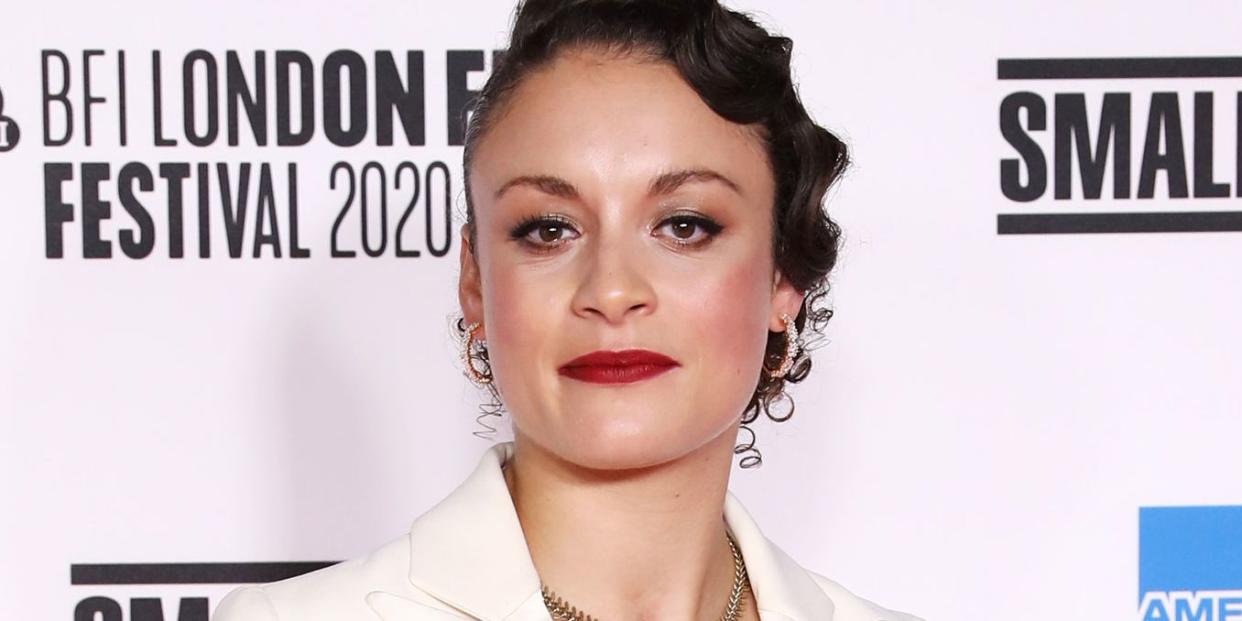
Line of Duty spoilers follow.
To celebrate Women's History Month and International Women's Day, we've launched Screen Sisters, a collection of conversations with women both in front of and behind the camera about what it means to be a woman working in television.
As well as recognising their contribution to the industry, the series will also examine how far television has progressed, and how much further it still has to go.
First up, we're speaking to Rochenda Sandall.
Rochenda Sandall's laugh is irresistible. It's rich and full, and you can't help but join her, swept up in its warmth.
But those of you who have watched Line of Duty will know that she can flick the switch.
Alongside its core cast – Adrian Dunbar, Vicky McClure and Martin Compston – the BBC police drama, which lifts the lid on corruption within the force itself, welcomes a smattering of new faces every series, and Rochenda received the call up for its fifth outing.
With just a handful of peripheral roles to her name in the likes of Kay Mellor's Love, Lies and Records and Jimmy McGovern's Broken, Rochenda's Line of Duty debut was the most sizeable addition to her CV, and likely went on to earn her more than few double takes during her weekly Tesco shop.
More than nine million people sat down to watch the finale during a series in which her character Lisa McQueen played an integral role, going toe to toe with the established faces and national treasure Stephen Graham (The Virtues, Boardwalk Empire, This Is England).
But rather than wilt, Rochenda held her own.
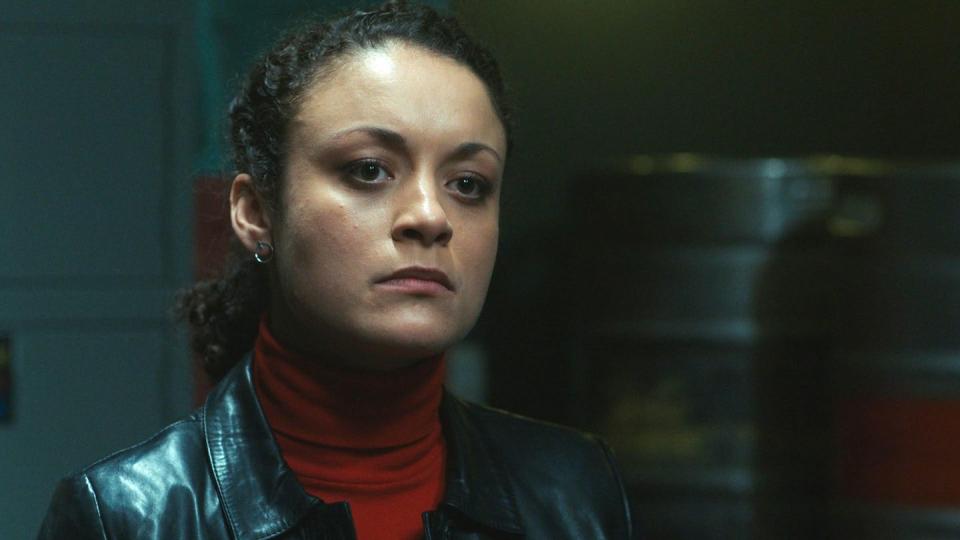
Unlike the woman playing her, Lisa isn't someone you'd want to grab a pint with.
"She's totally gangster, totally hard," she chuckles.
When we first meet her, she's floundering in the ruthless, relentless world of organised crime, emotionally ill-equipped to shoulder what's demanded of her.
She defies the orders of her boss John Corbett (Graham) by refusing to pull the trigger on a police officer, and in a later scene she suffers a panic attack after a dicey encounter with him. We see her wobble, and the writing absolutely wants you to believe that the lone female member of the crime syndicate will be the one to crumble. But it's Lisa who calmly looks into Corbett's eyes while he bleeds out on the floor before her.
"Let's get this mess cleaned up before we trade the livestock," she says coolly, referencing the room full of women next door who are set to be trafficked for sex work.
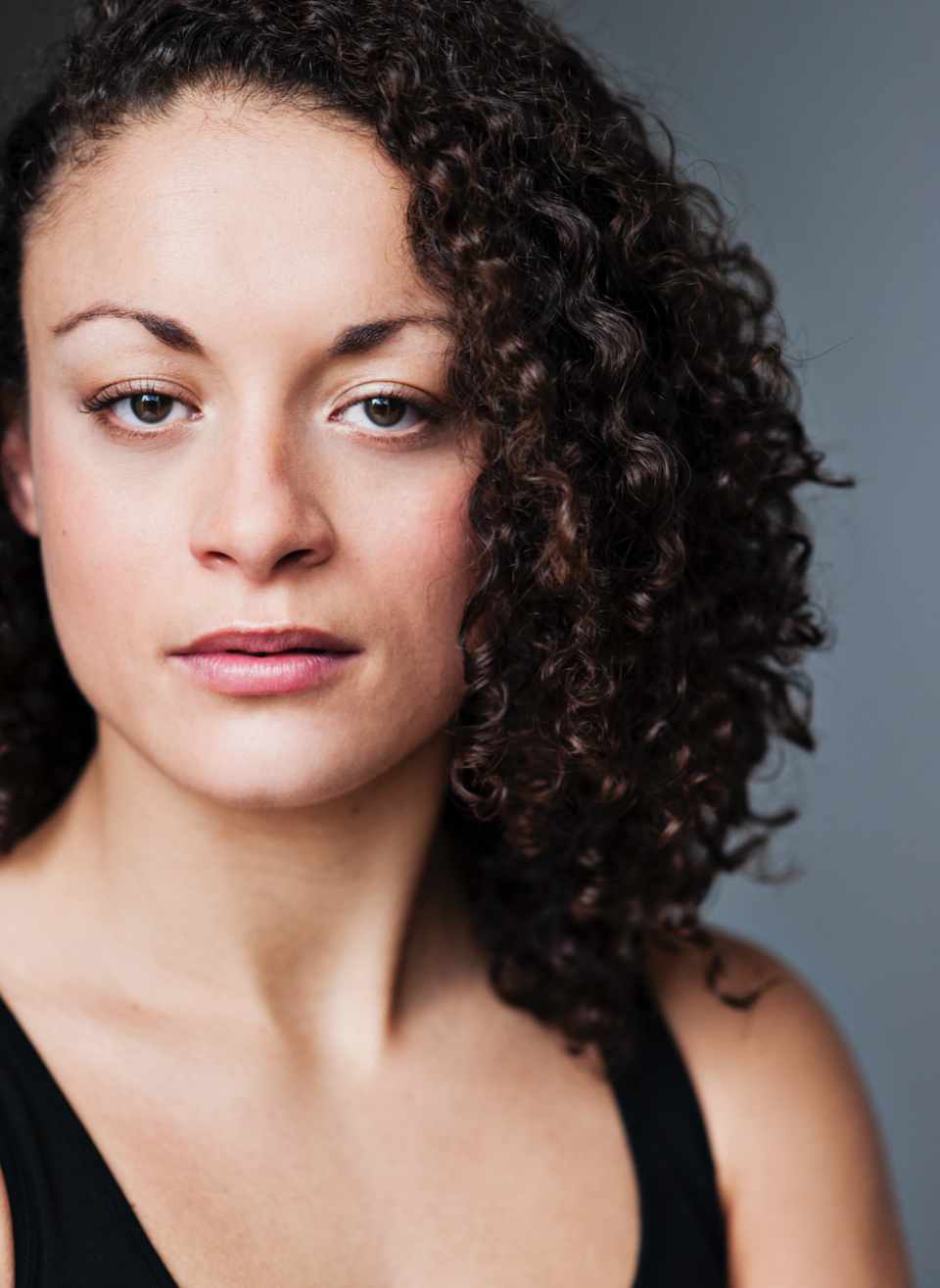
It's a portrait of a woman that stills feels revolutionary, but as the storytelling landscape continues to shift, those individuals are gradually becoming less of a rarity.
"Trying to understand the differences of how a woman like Lisa could do that job in comparison to a man, it's very interesting," she muses. "I don't see why women shouldn't be seen like that at all, especially now when we're seeing Ghislaine [Maxwell], who was the girlfriend of [convicted paedophile Jeffrey] Epstein."
[Maxwell has been arrested and charged with enticement of minors, sex trafficking of children and perjury, claims which she has repeatedly denied.]
"How could she have done that?" questions Rochenda, referencing Lisa. "How does she switch off? What's going on in a woman's psyche who behaves like that? That makes for much more interesting viewing."
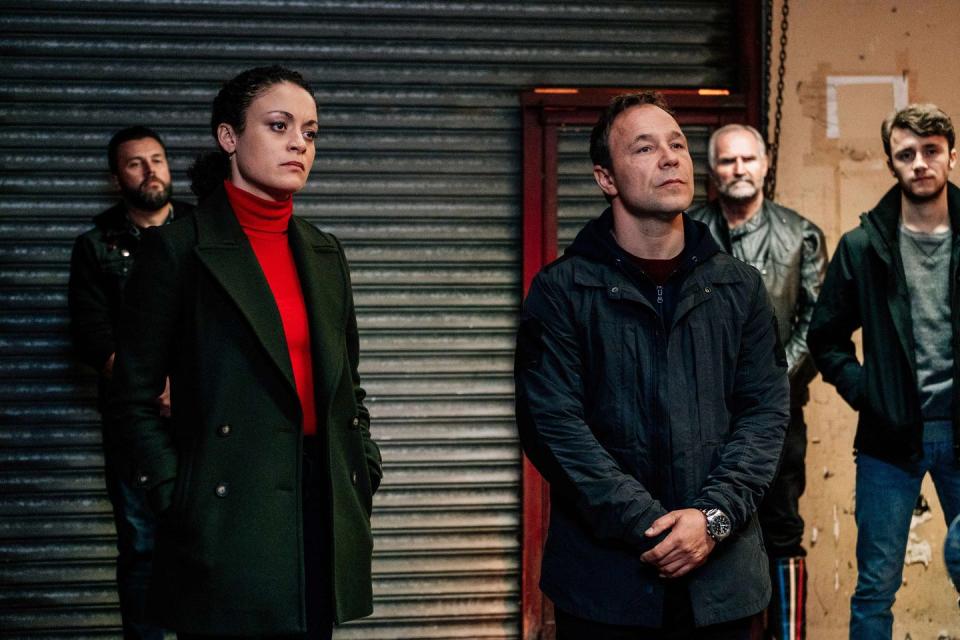
During one exchange, an opposing gang member teases Lisa about holding a torch for Corbett, but Line of Duty creator Jed Mercurio steered clear of that well-trodden trap. To give the relationship between the two a romantic dimension would have done Rochenda's character a great disservice. It would not only have perpetuated the trope that a woman's narrative cannot exist free from any form of intimate attachments, even within the parameters of her profession, but that the male allure is an all-consuming force that women are incapable of resisting.
"There was no sexual tension or anything like that," says Rochenda. "She was just a career-driven woman. I think it's very important to see that. I say: stop the sexualisation of women on screen and get them doing proper characters. Do you know what I mean?"
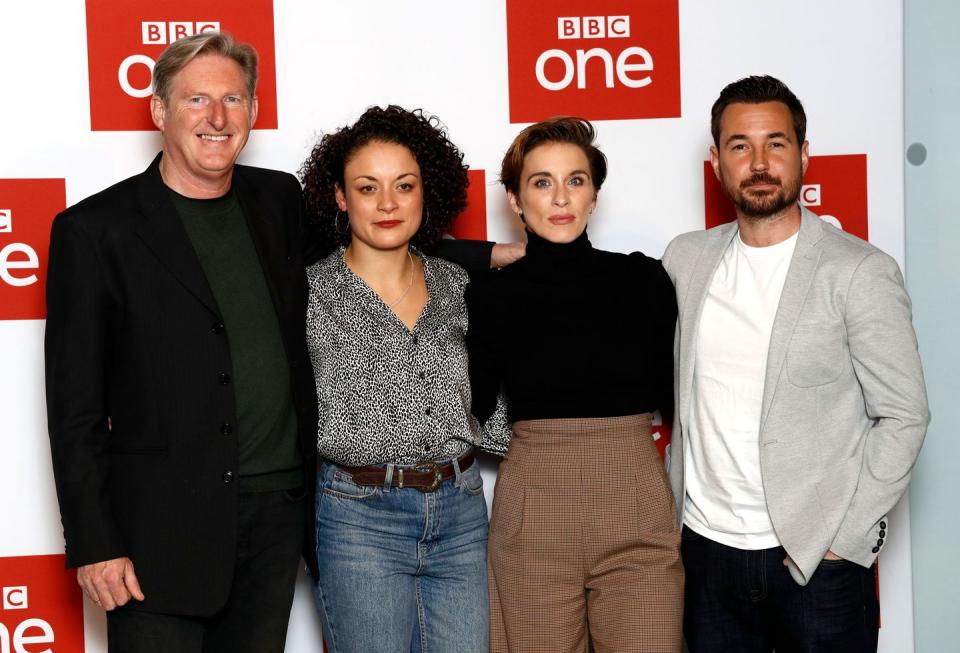
Rochenda credits Killing Eve's Villanelle, an assassin with a penchant for theatrically grotesque executions, and Peaky Blinders' Polly Gray, the matriarch of the Shelby crime clan, for birthing the spectrum of women that we're now seeing on both the big and the small screen.
"With Jodie Comer and Helen McCrory, there are these incredible parts that are carrying women forwards," she says.
"I don't think there's any kind of hesitation for female leads at all now, whereas I think previously there was, in my opinion. They were always secondary characters. You would never have got Villanelle."
And the growth that we're witnessing isn't just limited to what's happening in front of the camera, either. Rochenda highlights "the surge of females wanting to own shows, like Michaela [Coel, the brain behind I May Destroy You and Chewing Gum], and being part of the collaborative process in what it is to create a show".
Billie Piper, the face of another 2020 breakout I Hate Suzie, also co-created the drama alongside writer Lucy Prebble.
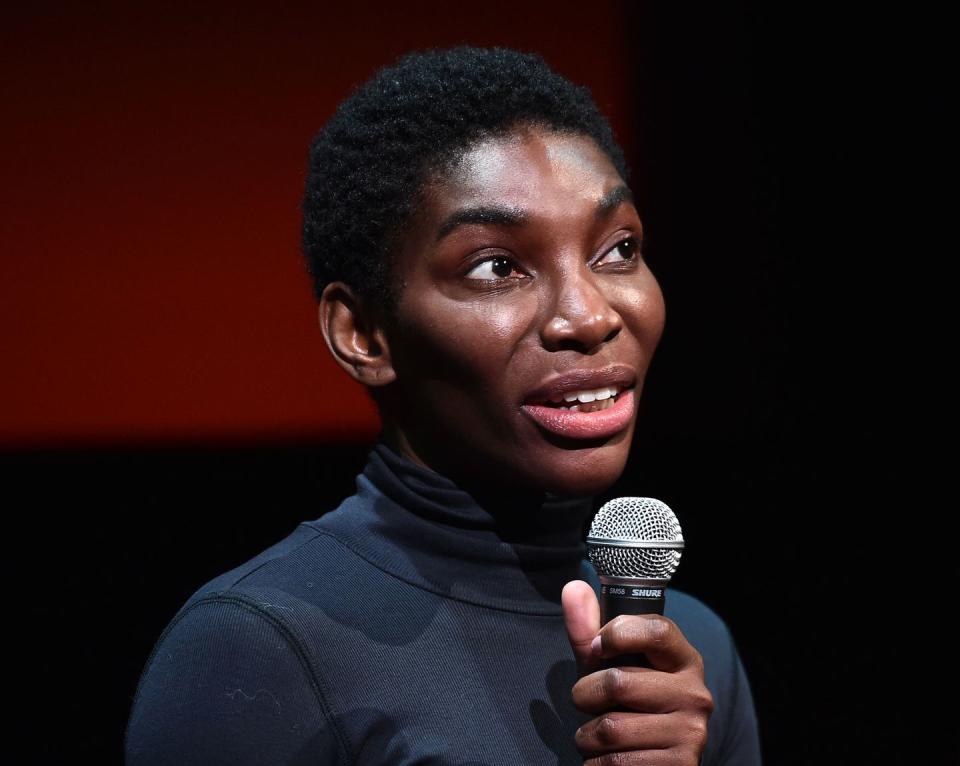
That, according to Rochenda, is the key to unlocking the very best opportunities for women already working in television, and those hoping to do the same.
"The scripts that I'm personally reading at the moment, that are coming through, are being led by women as well," she adds. "When you're changing the seats at the top – the exec producers and writers – that's when the ideas start to trickle down."
She's not wrong. According to figures from the 2019-20 TV season gathered by US-based organisation Women And Hollywood, shows that had at least one woman executive producer included more female protagonists and more women in central behind-the-scenes roles. On series with one female executive producer, the number of women writers was 39%, but for those who were only exec-produced by men, it sank to 12%.
"I really feel like you can feel that rain trickling down now for sure," she adds. "I do think we're at a point now in time where people are looking at specifics and saying, 'Are there enough women in this? Can we justify the cast?' With Jodie, she's playing a role that could just as easily be played by a man. I really like that fluidity. And why not? Women can hold a gun [laughs].
"And it doesn't just hold within the actors; it's also crew as well. You're seeing opportunities being given to people who weren't there five or six years ago, so it is changing. Eyes are on everybody at the moment, aren't they? It's not just our job. It's everything. And I think that's a perfect position to be in."
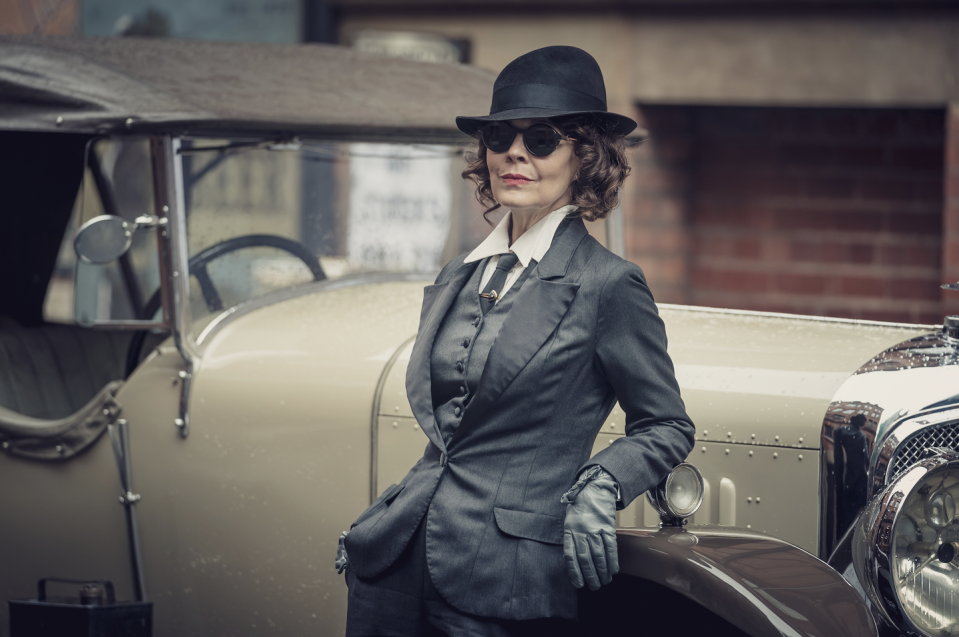
It should also go without saying that characters like Lisa and Villanelle, which have largely been reserved for men, aren't just captivating for us lot, their antics and actions an endless source of entertainment. They're a riot for the women portraying them, too.
Why play by the rules when you have a free pass to test the boundaries of acceptability and outrage? It's the ultimate make-believe, which must offer a certain degree of catharsis, as well as the surface pleasure of engaging in such shenanigans.
"It's really fun and great to play," explains Rochenda. "Like, really, really great to play – you know, getting in a car chase; going on the run. And being the first woman in one of their balaclavas was amazing. I was the first one in [Line of Duty]. Everything about it appealed to me."
More recently, Rochenda swapped fiction for the reenactment of a dark and shameful part of Britain's past that many, herself included, were unfamiliar with before it aired.
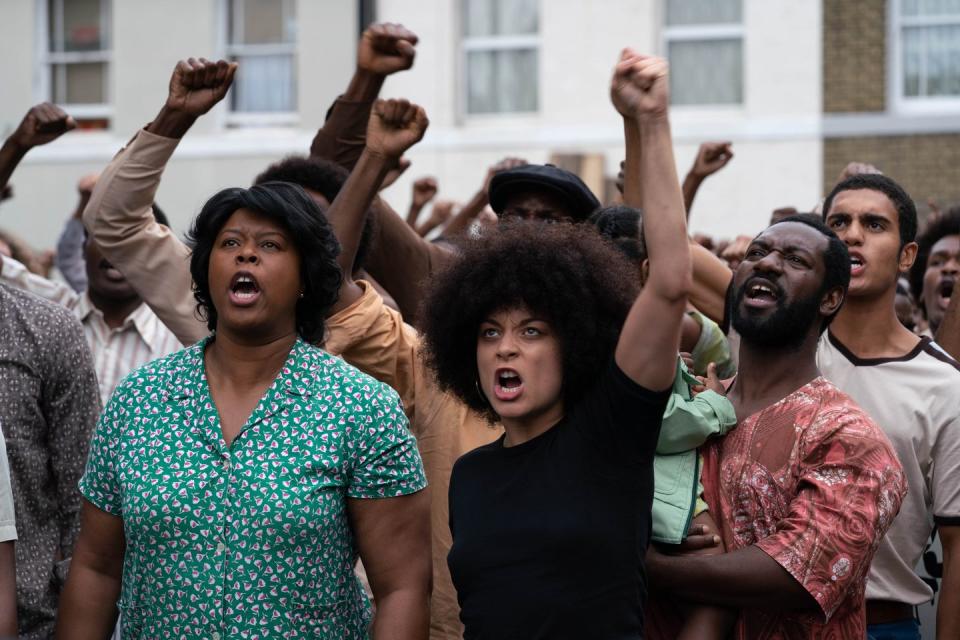
Steve McQueen's Small Axe anthology series centred stories and voices from London's West Indian community from the 1960s to the 1980s. It kicked off with Mangrove, named after the Caribbean restaurant and social hub in Notting Hill which was repeatedly targeted by the police in a series of racially motivated raids.
Rochenda played Barbara Beese, a writer and former member of the British Black Panthers who was tried in court for inciting a riot alongside eight others. The group, dubbed the Mangrove Nine, were collectively found not guilty, while also highlighting the systemic racism that pervades the criminal justice system at every level.
"It was a proud moment because we were telling the stories that were being asked to be told for years before, and had been ignored or pushed under the carpet, as much of Black history is," she says.
"It was hard to shake it off at the end. Everybody put their heart, soul, brain and everything into that piece. It was wonderful to be there. I don't think I'll ever forget it until the day I die."
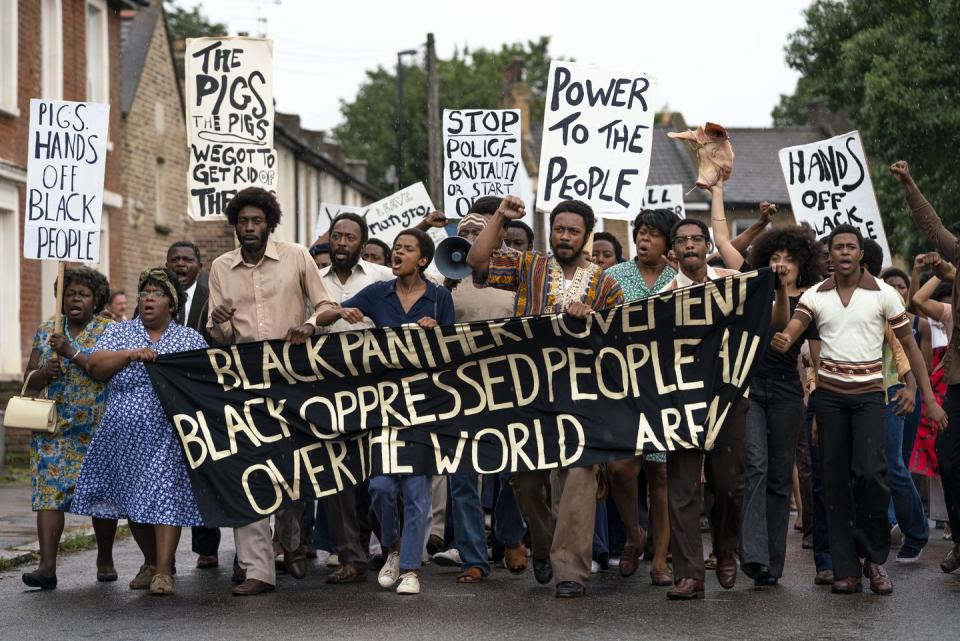
When titles like Small Axe are announced, the reaction is not always entirely celebratory, but not for the reasons you might expect. There are some who want to know why figures like Barbara are only just being given a mainstream slot on the BBC. Why has her legacy eluded mass consciousness for so long?
That fury and frustration is entirely understandable. But for Rochenda, the fact that we are beginning to see "huge, vast swathes" of women like Barbara and Altheia Jones-LeCointe (Letitia Wright) and their stories given a platform is cause for optimism.
"I personally don't think we should continue seeing it as a negative now, because it's starting to happen," she explains.
"And now we've broken the back of it and broken that first glass ceiling, I feel like the floods of stories can come through."
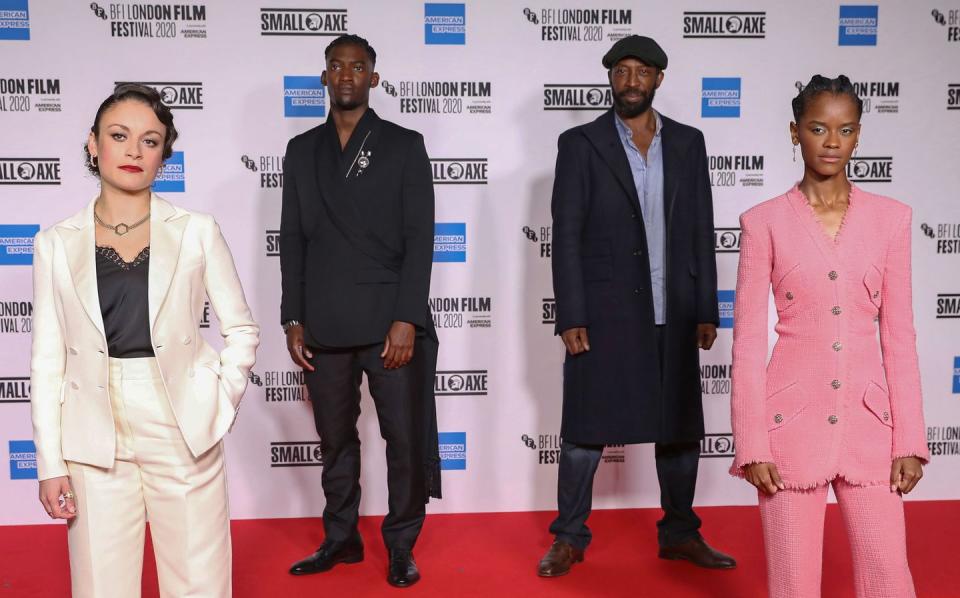
In a report published in January, the Creative Diversity Network, an group focused on improving diversity and inclusion within UK broadcasting, revealed that the number of Black, Asian and minority ethnic people working both on and off-screen had decreased last year compared with 2019.
Looking at the situation behind the camera, the figure had slipped from 12.3% to 11.8%. For context, the national workforce is estimated to sit at 13%.
In the drama category, the number of writers and directors stood at 6.5% and 8.4%, a decrease from 9.1% and 8.6%. And those in senior positions also witnessed a decline of 1.4% to 10.7%.
We already know that the vast majority of people working behind the scenes are men. According to Women And Hollywood, women made up 30% of all creators, directors, writers, producers, executive producers, editors and directors of photography on broadcast programs, 31% on cable programs, and 35% on streaming programmes during the 2019-20 season.
That means that the number of Black, Asian and Ethnic minority women in those positions will be even lower.
But what of Rochenda's own lived experience? Where does she think television is in terms of spotlighting Black female stories specifically?
"I think that there can always be more of everything," she says diplomatically. "I think that's what the whole nature of our business is – it's tinkering with the idea of, 'What is society? What do we look like at the moment?'
"You can feel it changing, casting directors and writers. That's where the ideas change and make a difference. The fashion of actors is always fluctuating and changing. It's letting new people in to write and tell stories and new creations."
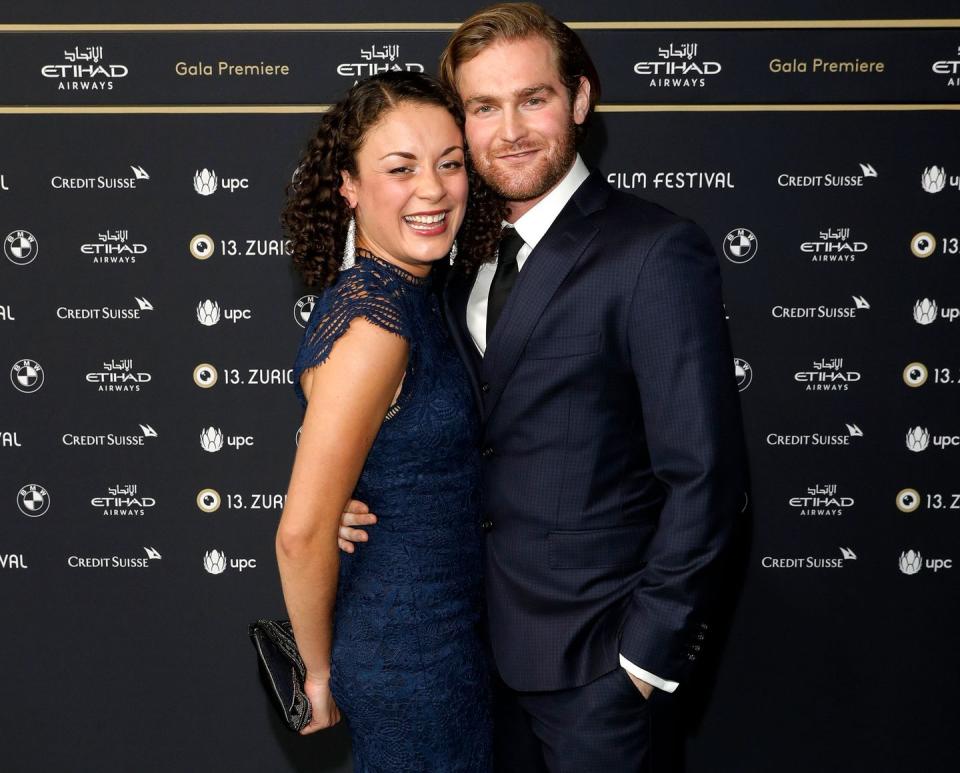
Rochenda's partner Mark Stanley (Game of Thrones, White House Farm), who she has also appeared with in Broken, Love, Lies & Records and Netflix's Criminal: UK, has been cast as Henry VIII in Channel 5's currently untitled Anne Boleyn psychological thriller series.
The upcoming project ignited a debate over whether the casting of Queen and Slim's Jodie Turner-Smith, a Black woman, as the titular character is a blow to historical accuracy, or indeed if it actually matters at all in a drama (especially given the multitude of white people who have played historical figures of a different race).
"There's already been a Daily Mail outcry even though it hasn't aired yet," she says. "But the fact that people are actually talking and discussing it, is incredible.
"It's not about what your opinion is – everybody's entitled to an opinion – but it's about getting people talking. And that, to me, is vital. Seeing things like that happen, it's incredible, you know? So carry on, I say [laughs]."
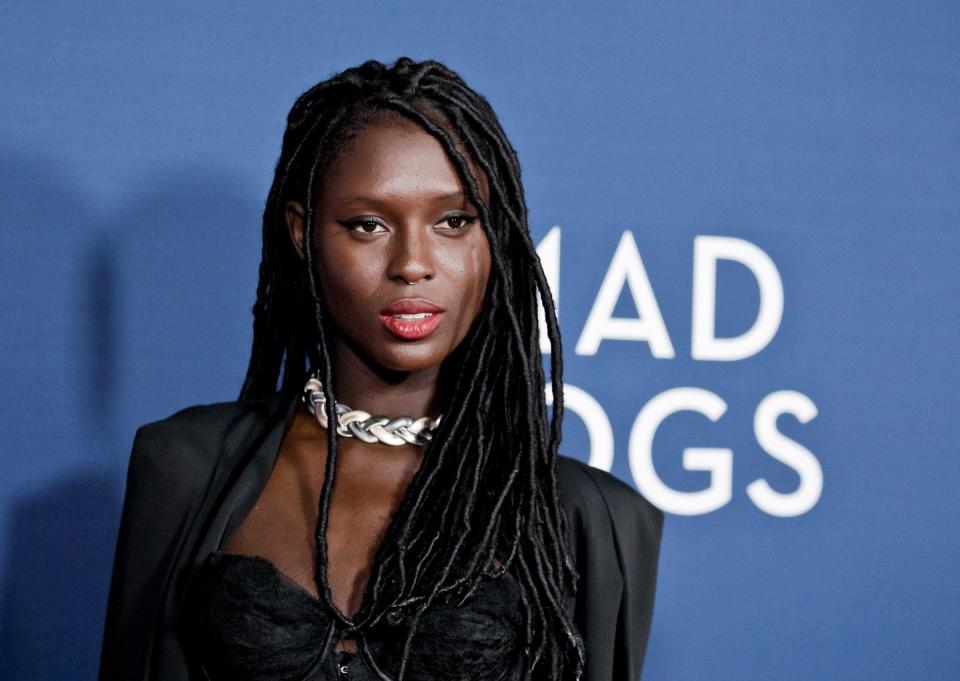
Rochenda tells us that she has never felt short-changed in comparison to white female actors during her career.
"I'm very lucky," she acknowledges. "But obviously, I'm quite light-skinned as a mixed-race, multi-heritage woman. There's an opinion that, when you're very dark-skinned, it doesn't work that way. But obviously I can't speak to that."
Her outlook is sunny, which doesn't chime with the perspective of some, or the findings that we underlined previously. But that is Rochenda's lived experience. She's speaking her truth, and her belief that better days are ahead is infectious.
"But I do feel since I left drama school 10 years ago – she completed a foundation course at East 15, before securing herself a place at RADA – it is changing. You're sat in rooms with lots of different types of people. It's just about the best person getting the job, which makes for a better competition, I think.
"We're nearly there. You can feel it changing."
Quick fire Q&A
Which woman do you admire, either on-screen or behind the scenes?
"I definitely look up to Helen McCrory. I love her career. She's amazing. A powerhouse."
Do you have a favourite female TV character?
"I just love Jodie Comer as Villanelle. I know a lot of people probably say that, but I just felt like her introduction was such a historic moment."
Do you have a favourite female showrunner or female-led show?
I would say Phoebe Waller-Bridge, for sure. And Broad City as well, for our American friends."
Is there a particular ground-breaking moment that has placed women front and centre that really sticks in your mind?
"Michaela Coel's ownership of I May Destroy You, saying "no" to Netflix and bringing it to England, and making it with the BBC. It's incredible."
For more information on how you can support Black Lives Matter, please visit its official website or donate here. Readers can also donate to the UK anti-discrimination group Stand Up To Racism, and the Unite Families & Friends Campaign, which supports those affected by deaths in police, prison and psychiatric custody.
Digital Spy has launched its first-ever digital magazine with exclusive features, interviews, and videos. Access the latest edition with a 1-month free trial, only on Apple News+.
Interested in Digital Spy's weekly newsletter? Sign up to get it sent straight to your inbox – and don't forget to join our Watch This Facebook Group for daily TV recommendations and discussions with other readers.
You Might Also Like

